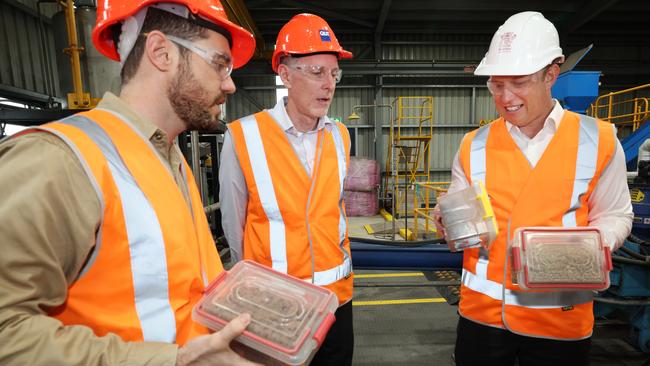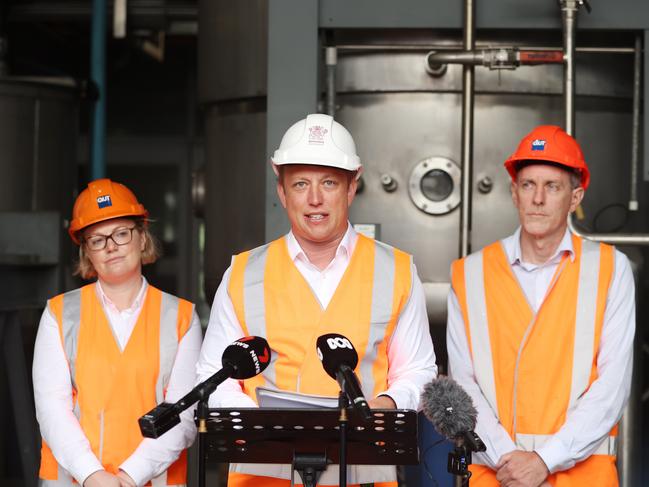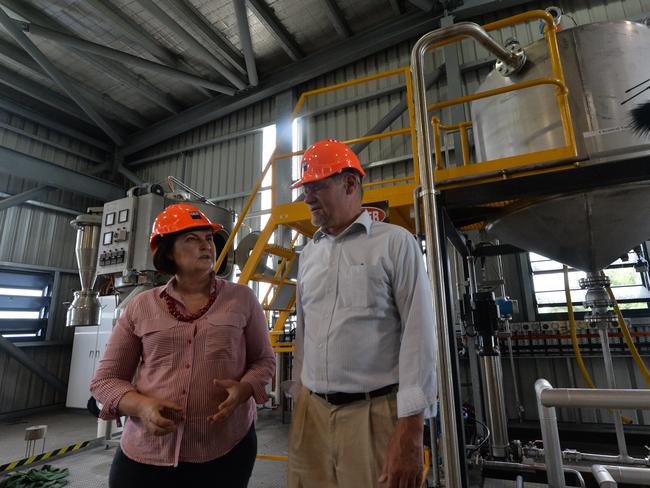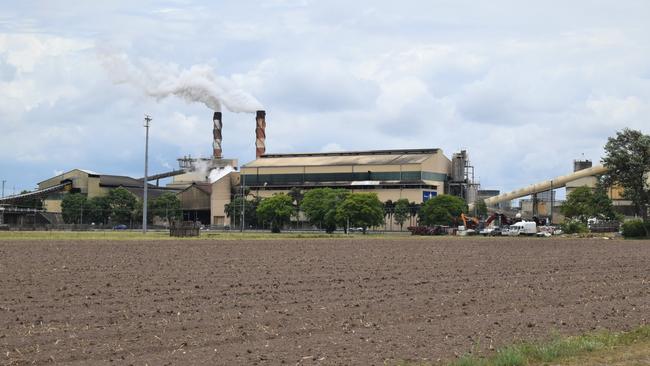Mackay BioFutures hub partners with Cauldron to turn sugar into proteins
A Queensland BioHub project looks set to turn traditional cane farming on its head as part of a $300 million project to tap into a worldwide industry expected to be worth $700 billion by 2040.

Mackay
Don't miss out on the headlines from Mackay. Followed categories will be added to My News.
Mackay is proving its BioFutures mettle as a proposed $300 million project powers ahead through a partnership centred on creating “an almost endless list of foods” with synthetic proteins as the building block.
Acting Premier Steven Miles said the state government had partnered with Cauldron to develop a business case for “large-scale” precision fermentation at a “Future Foods” facility.
Precision fermentation is a brewing process that makes synthetic proteins identical to those of animals, which can then be used to create foods, medicines, and an almost endless array of products. It is a burgeoning industry tipped to reach $700 billion worldwide by 2040.
“The proposed $300 million (Mackay Cauldron) facility will provide the anchor infrastructure Queensland needs to catalyse a new commercial-scale industry, complement the region’s agricultural and manufacturing strengths, protect existing jobs in the sugar industry, diversify the local economy and create new local jobs,” Mr Miles said.
“Queensland can be at the centre of meeting the global demand for food with our strong animal agriculture industries and the natural resources, talented workforce and government commitment to growing the Biofutures industry, which includes Future Foods.
“Nationally, CSIRO estimates the fermented Future Foods industry could produce close to $1.1 billion worth of retail products and up to 2,020 jobs by 2030.“

Cauldron founder, NSW-based Michele Stansfield, said there was a “unique opportunity” to make Australia a “regional powerhouse” in precision fermentation and “unlock future breakthroughs in science, technology and medicine, in combination”.
Ms Stansfield has extensive experience at Agritechnology, which focuses on developing nutritional products “using fermentation, enzymes, formulation, liquids and powders”.

Cauldron’s proposal, which gets a $528,000 funding injection from the state government, strengthen’s Mackay’s positioning as a state BioHub capital with other projects including Mercurius’ pilot plant to turn sugar into jet fuel and plastic beer bottles, and QUT’s Renewable Biocommodities research and development facility.
QUT’s pilot plant at the Mackay Racecourse is expanding, with Mr Miles in Mackay on Tuesday saying Queensland can become an “Asian-Pacific hub in biomanufacturing and biorefining”.

QUT aims to untap biofuels, green chemicals and bioproducts opportunities through the conversion of biomass like by-products from sugar production.
In a modern take on the aged-old process behind making bread and yoghurt, sugar will be fed to microorganisms — in this case fungus or yeasts — in a fermentation process that then produces alternative proteins as building blocks for various foods.
GW3 CEO Ms Porter earlier said alternative, or synthetically-produced proteins, may sound “new age” but it was already big business, such as with Hungry Jack’s Rebel Whoppers, the burgers’ meatless patties ordered from plant-based company V2food.
Mackay MP Julieanne Gilbert said the pilot plant expansion – funded via the state government’s $350 million Industry Partnership Program – was amalgamating traditional and new industries, and would appeal to companies “looking to use sugar feedstocks for their products”.
QUT Faculty of Engineering deputy dean Ian O’Hara said the “critical” expansion allowed them to test technologies at scale, grow Australian companies, and attract new investors, “supporting a profitable future” for Australian-grown sugar.
The IPP is part of the $5.84 billion Queensland Jobs Fund.





